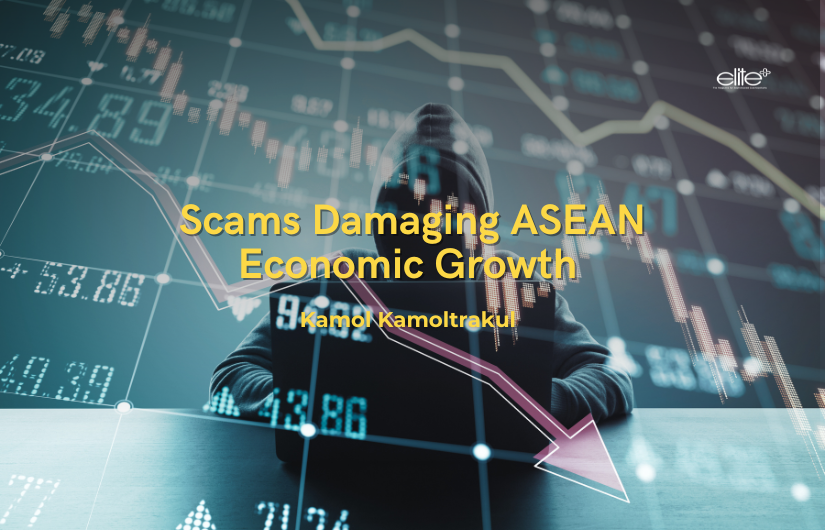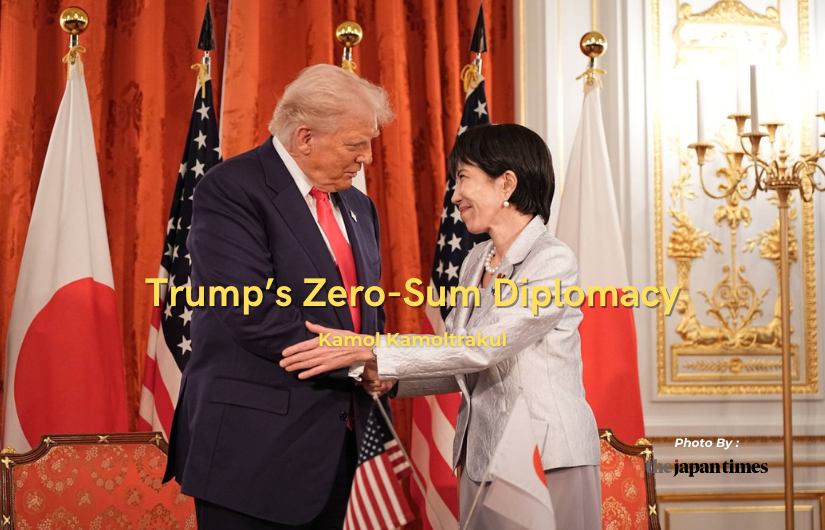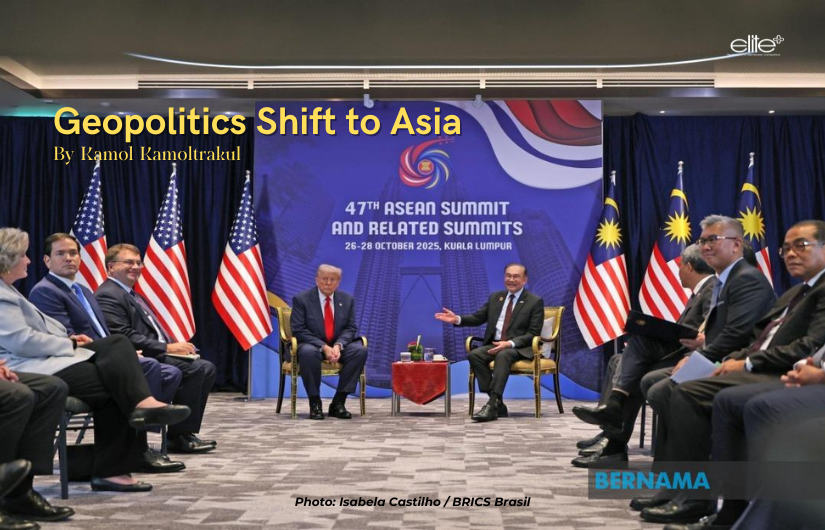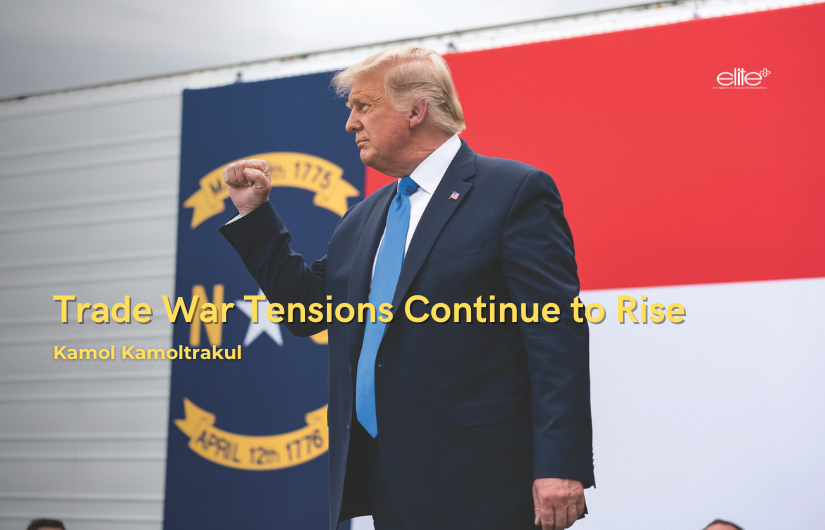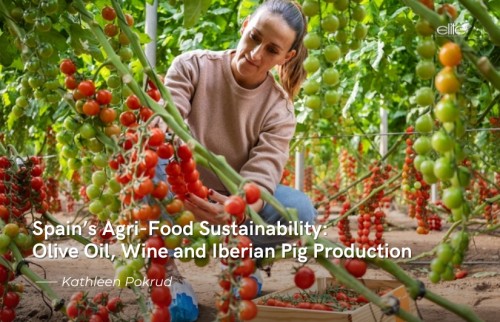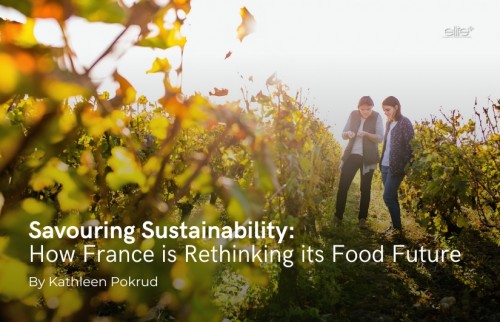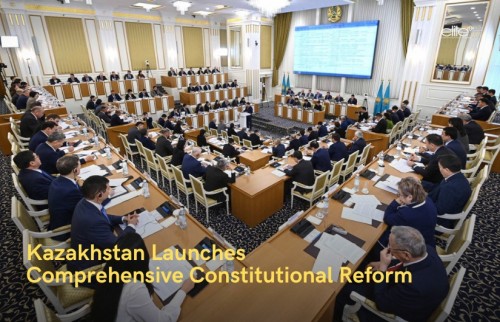Trump’s New World Order
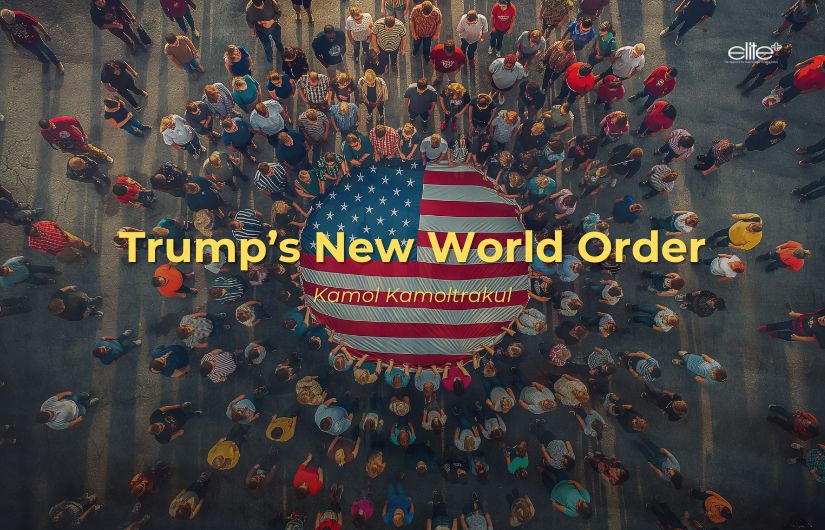
In the past seven decades, the world order has been based on international institutions' rules, one’s the US played a vital role in establishing and maintaining. These include the UN Charter, International Covenant on Civil and Political Rights(ICCPR), International Covenant on Economic Social and Cultural Rights (ICESCR) and Universal Declaration of Human Rights (UDHR), to name a few. Over time they became the rules applied to solve international political and economic conflicts.
Before the World War II, there were no rules to follow, which led to the war which left over 85 million people globally killed.
US President Trump now wants to challenge the old world order the US had helped to create. Leaked news from one of Trump's top economic advisors, Stephen Miran, the current chairman of the Council of Economic Advisers, hinted that the White House might be working to establish a new kind of global economic order that goes beyond higher tariffs.
According to Trump, monetary tariffs and non-monetary tariffs are two distinct types of trade barriers that governments use to regulate imports and exports. This is why he says he is countering both through reciprocal tariffs to protect American workers and industries from these unfair practices.
Furthermore, Trump set the Golden Rule for Our Golden Age. He says, today’s actions simply tell other countries to treat us like we treat them. This golden rule is based on the premise that access to the American market is a privilege, not a right. Trump goes on to say that the United States will no longer put itself last on matters of international trade in exchange for empty promises. Reciprocal tariffs are a big part of why Americans voted for President Trump; it was a cornerstone of his campaign from the start.
According to analysts, everyone knew he’d push for the tariffs once he got back in office. It’s exactly what he promised, and it’s a key reason he won the election. These tariffs are central to President Trump’s plan to reverse the economic damage he blames on former President Biden. He says he’s putting America on a path to a new golden age. This builds on his broader economic agenda of energy competitiveness, tax cuts, no tax on tips, no tax on Social Security benefits and deregulation to boost American prosperity.
To implement his policy, President Trump has declared a national emergency to increase the country’s competitive edge and protect its sovereignty. As the White House has already made pretty clear, its economic goals include reducing or eliminating America's trade deficits with foreign countries and boosting domestic manufacturing. Tariffs are one big tool to achieve these goals. However, the existing global economic system is built on more than just low tariffs and free trade.
The reconfiguration of the world order, according to Trump’s intentions revealed in a fact sheet, will follow two main lines, using the influence of strengthened domestic manufacturing and national security on international dynamics and adapting foreign policies that will limit the growing power of countries like China.
Trump may seek to slow down the creation of a multipolar world by fostering strategic alliances with countries more aligned with US interests, such as those in Eastern Europe, and pushing for a more confrontational stance with actors like Russia. His vision thus entails a strengthening of US hegemony, anchored in the framework of “Manifest Destiny”, the 19th-century doctrine that US expansion throughout the American continents was justified. Trump’s “America First” policy is just expanding on this doctrine, so that US global leadership is becoming less focused on NATO and the European Union and more on unilateral goals.
According to the international “Vision and Global Trends” platform of the International Institute for Global Analyses in Rome, the “America First” agenda, which focuses on greater attention to national interests as perceived by Trump and his supporters, gives less emphasis on multilateral alliances. They say the domestic policy agenda, based on the development of domestic industrial production, will resonate in Washington’s relationships with its allies and major global players, particularly Beijing.
The fight against the so-called “deep state” will have repercussions on Washington’s traditional alliances, and, therefore, Trump will need to find new interlocutors within the Western system, likely among the so-called sovereigntists or populists, according to an article published in The Diplomat in February of this year.
It is believed that under Trump the US will continue to pursue a policy of strengthening national defence, with particular attention to hegemony in the Western hemisphere, potentially adapting a version of the Monroe Doctrine. In foreign policy, Trump is likely to maintain a defensive but determined stance toward China and Russia, seeking to hinder and slow the transition toward a multipolar order.
Policies toward emerging countries, especially those in the Global South, may focus more on bilateral agreements rather than multilateral treaties. This emphasis on bilateral practices will further weaken international organisations like the UN and other institutions created after World War II. Thus, Trump’s foreign policy will also impact traditional international law, accelerating its structural transformation.
Regarding China, further deterioration of relations is expected, with the aim of reducing US dependence on Chinese imports while strengthening domestic industrial production. Moreover, the growing focus on technological and space competitiveness will likely lead to even stronger rivalry with Beijing in the medium term.
As far as Russia is concerned, Trump will likely move strategically to further hinder its influence in Europe and other key regions such as Central Asia and Africa, trying to gain advantages without overly compromising already difficult bilateral relations. In summary, the dynamics with China and Russia will be marked by strategic competition, with Trump pushing for a power balance favourable to the US without risking direct conflict.
It appears the Trump administration views the world as a place of rivalry between great powers, where the US must reaffirm its leadership, starting with total control of the Western Hemisphere. Its foreign policy, beyond the media narrative, will not stray far from the traditional positioning of the US in the international arena.
The strengthening of national defence will translate into hegemonic policies aimed at greater and more effective control of the Western Hemisphere, within the context of rationally coherent and firmly anchored historic geopolitics. Trump’s remarks regarding Panama, Canada and Greenland have been labelled as “gimmicks” or “outbursts” by the media. His vision realistically implies a transition toward a multipolar world order, but with the US striving to maintain and seek a dominant position. Hence, according to Trump, might is right for the new world order.

Kamol Kamoltrakul 48 Posts
Visiting lecturer: Navy Academy Institution, NIDA, School of Governor, Ministry of Interior, Chulalongkorn University, Former Lecturer, ABAC Honorary Advisor Trade and Industry Committee Senate. Senior advisor, Standing Committee on Finance and Banking, The House of Representative. Former Advisor to the Minister of Interior Board Member of ThaiPBS Board Member Of Thai Consumer Council Columnist : Prachachart Business Weekly, Matichon Weekly, Khom Chad Luke Daily Former Program Director Asian Forum for Human Rights and Development ( FORUM-ASIA).




